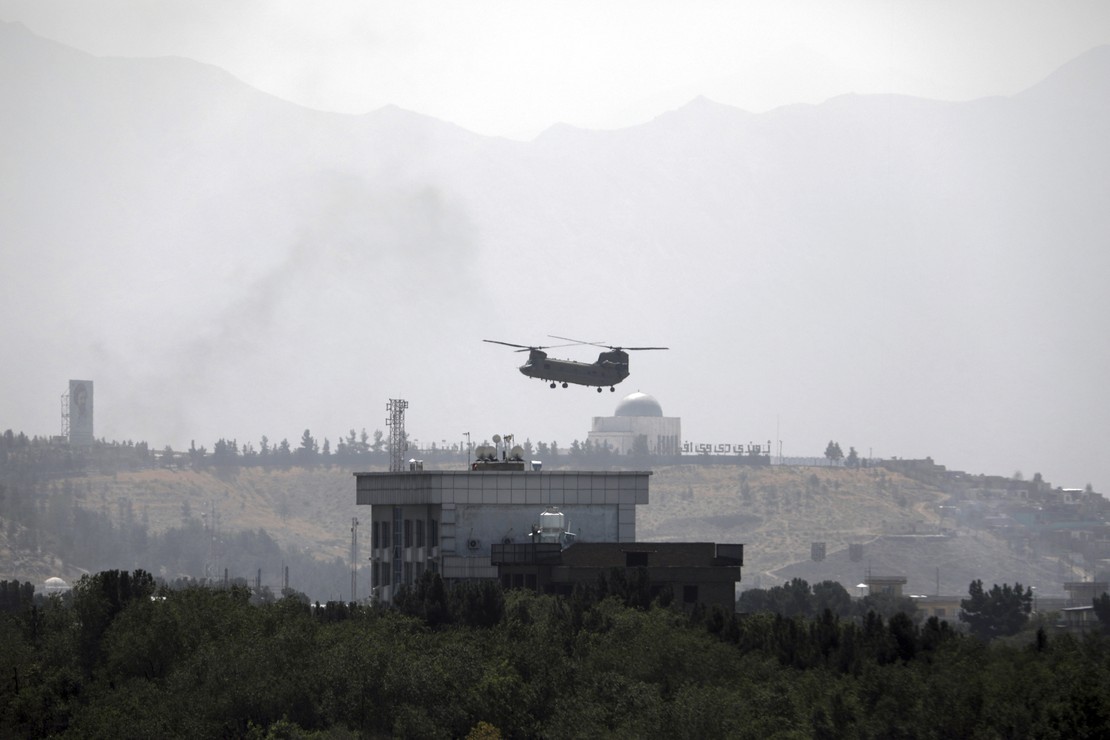
How time flies. It’s almost hard to believe that it’s been a year now since America’s disastrous withdrawal from Afghanistan. The images of the final flights leaving the country and the throngs of desperate people trying to find a way out as the Taliban closed in are still burned into our collective memory. But inside the Biden administration (which has never really taken responsibility for that debacle), particularly in the CIA and other intelligence agencies, people are “moving on” from Afghanistan. The new focus is on China and the various military and economic threats they pose to the rest of the world. To be sure, fighting Islamic terrorism isn’t off the table entirely, as demonstrated by the recent elimination of a top Al Qaeda leader, but many assets are being reshuffled to study the Chinese Communist Party and develop strategies to counter their activities. (Associated Press)
In a recent closed-door meeting with leaders of the agency’s counterterrorism center, the CIA’s No. 2 official made clear that fighting al-Qaida and other extremist groups would remain a priority — but that the agency’s money and resources would be increasingly shifted to focusing on China.
The CIA drone attack that killed al-Qaida’s leader showed that fighting terrorism is hardly an afterthought. But it didn’t change the message the agency’s deputy director, David Cohen, delivered at that meeting weeks earlier: While the U.S. will continue to go after terrorists, the top priority is trying to better understand and counter Beijing.
One year after ending the war in Afghanistan, President Joe Biden and top national security officials speak less about counterterrorism and more about the political, economic and military threats posed by China as well as Russia. There’s been a quiet pivot within intelligence agencies, which are moving hundreds of officers to China-focused positions, including some who were previously working on terrorism.
There’s no reason to argue that China is the greatest threat facing the western world at this point. They are clearly a greater threat than even Russia, assuming you’re willing to ignore all of the nuclear weapons they have between them. China has spies deeply embedded in countries all around the world, including the United States. Their control of the global supply chain makes them an ever-present threat to the world economy. They prop up destructive socialist governments such as Venezuela. And they are constantly on the verge of potential military aggression, as we’re currently observing in the Taiwan Strait.
READ RELATED: BREAKING: Legendary Dodgers Announcer Vin Scully Has Passed Away
But engaging in counterterrorism activities against China is far different than fighting Al Qaeda. With Islamic terrorists, you try to pin down where they are located and then send in some troops or drones to kill them. It’s not easy by any means, but it’s at least fairly straightforward. We don’t just go around shooting or blowing up Chinese agents. The best we can typically do is root out their spies and eject them from the country. Of course, that is also important work suitable for the CIA’s attention.
But with that said, this shift in focus presents two worrisome possibilities. The first is the reality that Islamic terrorism has never fully gone away. It simply goes underground while significant attacks are being made on it, biding its time until the world’s attention moves on to other issues. Then it begins regrowing like weeds in a garden. The Taliban is one of the best examples of this pattern. When allied forces drove them from power more than 20 years ago, the Taliban didn’t evaporate. They waited in the shadows until we left and then immediately came back bigger and stronger than ever.
Then there is the future to consider. The less attention that’s paid to the threat of Islamic terror and the atrocities that are still being committed by the Taliban, the more “normalized” they will seem. The Taliban desperately want to be recognized as a legitimate governing entity and they appear to be on a path to achieving that goal. When that happens (and it almost certainly will), it will mark a dark day in world history. We appear to be poised to simply throw up our hands and say that a group of murderous butchers and human rights violators can take over a country by force without the benefit of holding elections and simply declare themselves the masters of that country’s people.
Our withdrawal from Afghanistan was nothing short of a disaster and the damage is still being felt today. But it’s hard to criticize the Biden administration for shifting or at least expanding our attention to China. That will be the greatest challenge the United States and our allies face in the first half of the 21st century. We’re just going to have to learn how to walk and chew gum at the same time, apparently.
Source:





